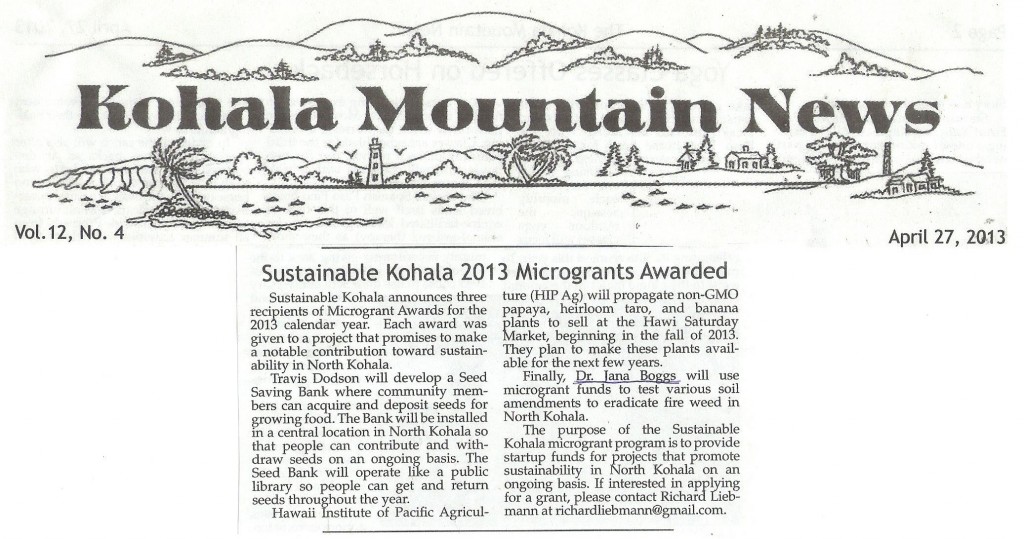Sustainable Kohala recently offered grants for new sustainable projects in the North Kohala community on the Big Island of Hawaii. Dr. Bogs was awarded one of the grants for her research proposal entitled, Controlling Toxic Fireweed Through Natural and Sustainable Means.
The purpose and goals of the project are to develop practical, natural and sustainable methods of control of Fireweed (Senecio madagascariensis Poiret, also known as Madagascar ragwort), a highly toxic, extremely invasive, yellow-flowering weed which is taking over pastures in North Kohala. This weed is liver toxic and has resulted in grazing animal deaths. While animals try to avoid eating the weed, they accidentally consume it while eating grasses intertwined with it. Fireweed is crowding out good forage, effectively decreasing pasture grass volume.
How does this project meets the criteria of local sustainability? Grazing animals and, hence, ranchers and other grazing animal owners are at risk from this highly invasive species which was introduced to this island in the 1980’s. Current methods of control include spraying toxic herbicides and grazing management, neither of which has proven to be very effective or practical. For their safety, grazing animals must be removed from pastures treated with herbicides for at least several days, creating a hardship for some livestock owners. Herbicides are persistent in the environment, some for as long as five years. Even after the recommended waiting period, herbicide residues may be problematic for grazing animals because they are absorbed by all plants that they contact. Furthermore, these compounds are toxic to fish and may find their way to ground water and our nearby ocean. Promoted by the extension service, grazing management has proven to be helpful in some situations, but creates a major hardship in that animals must be removed from the land for up to two years to effect a significant change.
Dr. Bogs’ proposed experiment is based on the work of the famous soil microbiologist, Dr. Elaine Ingham. Dr. Ingham gave a week long course in Kapaau (North Kohala) in July 2012, which Dr. Bogs attended. The theory is that soil conditions can be changed to favor the growth of desired plant species while discouraging the growth of weeds. The soil treatment programs are safe for livestock, so horses will be allowed to graze continually. The ability to treat a pasture without removing livestock is a major benefit.
Work has already begun on the project, which will run through the end of the year, so stay tuned!



Recent Comments